
The World Quantum Day, celebrated on 14 April, is an initiative from quantum scientists from 65+ countries, aiming at promoting the public understanding of Quantum Science and Quantum Technology around the World. It is a decentralized and bottom-up initiative, inviting all scientists, engineers, educators, communicators, entrepreneurs, technologists, historians, philosophers, artists, museologists, producers, etc., and their organisations, to develop their own activities, such as outreach talks, exhibitions, lab tours, panel discussions, interviews, artistic creations, etc., to celebrate the World Quantum Day around the World.
QWorld is celebrating World Quantum Day with six online talks and presentations. This initiative is part of a global effort to promote public understanding of quantum science and technology. The talks will be hosted by leading experts in the field, and will cover a range of topics. Attendees will have the opportunity to learn about the latest developments in the field, as well as ask questions and engage in discussions with the speakers.
The talks are open to anyone interested in learning more about quantum science and technology, from students to professionals. The presentations will be accessible online, allowing people from all over the world to participate. This is an excellent opportunity for those who are curious about this rapidly growing field, or who want to stay up-to-date on the latest developments.
QWorld’s celebration of World Quantum Day is a great way for people to learn more about this fascinating field, and gain insight into its potential applications. By bringing together experts from around the world, QWorld is helping to spread knowledge and understanding of quantum science and technology.
Program of QWorld’s World Quantum Day
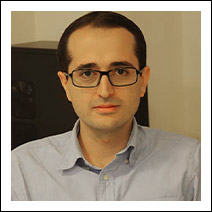
5:30 – 6:30 GMT (9:00 – 10:00 IR)
Saleh Rahimi-Keshari (IPM)
MSc from the University of Calgary in Canada, and Ph.D. from the University of Queensland in Australia, both in quantum information and quantum optics. _DAAD Postdoctoral fellow at the University of Hannover in Germany and the University of New Mexico in the USA. Assistant Professor in the Department of Physics at the University of Tehran from 2019 to 2022. Currently, Assistant Professor in the School of Physics at IPM.
Title: Nonclassicality as a resource for quantum-information processing.
Abstract:
Identifying quantum resources that can enable us to perform information-processing tasks, beyond the scope of what can be achieved using classical resources, is of particular interest in quantum information science. In this talk, I will review the notion of nonclassicality in terms of phase-space quasiprobability distributions, and then discuss its role as a resource for boson sampling, quantum protocols in device-independent scenarios, and quantum nonequilibrium thermometry.
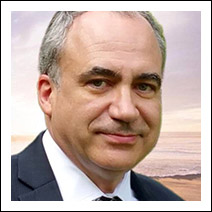
6:45 – 7:45 GMT (10:15 – 11:15 IR)
Alain Chancé
Alain Chancé is Chief Business, Marketing Officer and Co-founder MolKet which offers cloud-based software with AI services and solutions for molecular modeling and design using quantum and high-performance computing (HPC). He is founder and CEO Quantalain SASU and Alainquant LLC, business management consulting startups. Alain is co-author of the book “Quantum Chemistry and Computing for the Curious: Illustrated with Python and Qiskit® code”, Packt Publishing (2020). Alain is a Qiskit® Advocate and is an IBM Certified Associate Developer – Quantum Computation using Qiskit®v0.2X since 2021. He has completed several quantum challenges since 2018. He has over 30 years of experience in major enterprise transformation projects with a focus on data management and governance gained in major management consulting firms. He has a diploma Ingénieur civil des Mines from École des Mines de Saint-Étienne in France (1981).
Title: Opportunities and challenges in Quantum Chemistry
Abstract:
In this talk, we explain that the main challenge in quantum chemistry is balancing accuracy versus speed of computation and overcoming theoretical model limitations such as the Born-Oppenheimer approximation which fails dramatically to simulate certain molecular-dynamics systems. We put forward that Quantum chemistry 2.0 is coming enabled by Artificial Intelligence (AI). We give two examples of recent and promising hybrid quantum-classical algorithms for quantum chemistry. We then focus on tightly integrated HPC-quantum computing offerings for AI and quantum chemistry: NVIDIA’s CUDA Quantum, Qiskit Runtime and MolKet’s cloud-based software with Al services and solutions for molecular modeling and design using quantum computing and HPC. The presentation is followed by my interview as co-author of the book titled “Quantum Chemistry and Computing for the Curious: Illustrated with Python and Qiskit® code” and by a questions and answers session.
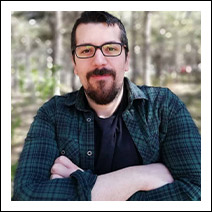
8:00 – 9:00 GMT (11:30 – 12:30 IR)
Zeki Can Seskir
Zeki C. Seskir is a doctoral researcher at KIT – Institute for Technology Assessment and Systems Analysis. He received his MSc degrees in physics and STPS (science and technology policy studies). He is a founding member and advisor of the QTurkey and an early member of the QWorld, a global NGO focused on education and popularization of quantum technologies. His interests cover a wide range of topics from quantum information science to economics and philosophy of emerging technologies.
Title: Quantum games and interactive tools for quantum technologies outreach and education.
Abstract:
In this work, we provide an extensive overview of a wide range of quantum games and interactive tools that have been employed by the quantum community in recent years. present selected tools as described by their developers, including “Hello Quantum, Hello Qiskit, Particle in a Box, Psi and Delta, QPlayLearn, Virtual Lab by Quantum Flytrap, Quantum Odyssey, ScienceAtHome, and the Virtual Quantum Optics Laboratory.” In addition, we present events for quantum game development: hackathons, game jams, and semester projects. Furthermore, we discuss the Quantum Technologies Education for Everyone (QUTE4E) pilot project, which illustrates an effective integration of these interactive tools with quantum outreach and education activities. Finally, we aim at providing guidelines for incorporating quantum games and interactive tools in pedagogic materials to make quantum technologies more accessible for a wider population.

12:00 – 12:30 GMT (15:30 – 16:00 IR)
Ricky Young
Ricky is a software engineer and COO of qBraid. He graduated from Stanford University with a b.s. in engineering physics.
Title: Using qBraid for quantum computing.
Abstract:
In the following talk a demonstration of the qBraid Platform will showcase running quantum computers provided by Amazon Braket on qBraid’s cloud based development environment, qBraid Lab. Participants will be able to follow along and run their own quantum programs in under 5 clicks.
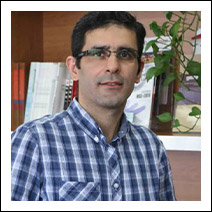
12:45 – 13:45 GMT (16:15 – 17:15 IR)
Abolfazl Bayat
Abolfazl Bayat has received his PhD in Physics from Sharif University in 2008. After that he spent 10 years in world-leading universities as postdoc and research fellow. This includes University College London in the UK (2008-2011 and 2013-2018) and University of Ulm in Germany (2011-2013). In 2008, he has joined the University of Science and Technology of China as a faculty. His main research interest is quantum simulation, quantum sensing and many-body physics.
Title: Ensemble Quantum Machine Learning.
Abstract:
Classification is one of the main applications of supervised learning. Recent advancement in developing quantum computers has opened a new possibility for machine learning on such machines. However, due to the noisy performance of near-term quantum computers, we desire an approach for solving classification problems with only shallow circuits. Here, we propose two ensemble-learning classification methods, namely bootstrap aggregating and adaptive boosting, which can significantly enhance the performance of variational quantum classifiers for both classical and quantum datasets. The idea is to combine several weak classifiers, each implemented on a shallow noisy quantum circuit, to make a strong one with high accuracy. While both of our protocols substantially outperform error-mitigated primitive classifiers, the adaptive boosting shows better performance than the bootstrap aggregating. In addition, its training error decays exponentially with the number of classifiers, leading to a favorable complexity for practical realization. The protocols have been exemplified for classical handwriting digits as well as quantum phase discrimination of a symmetry-protected topological Hamiltonian.
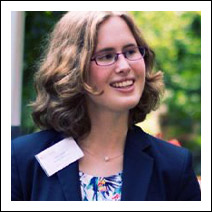
14:00 – 15:00 GMT (17:30 -18:30 IR)
Marlou Slot
Marlou Slot is a condensed-matter physicist with strong expertise in Quantum Materials and Scanning Probe Microscopy. She investigates novel electronic quantum matter at the National Institute of Standards and Technology (NIST) and heads the Quantum Team at the DC-based organization Womanium to create the quantum workforce of tomorrow. The Womanium Quantum Summer Program 2023 will bring together scientists, CEOs and industry leaders in Quantum Computing + Sensing + Entrepreneurship to train the next generation of quantum leaders.
Title: Designing Quantum Matter Atom by Atom
Abstract:
“Ultimately – in the great future – we can arrange the atoms the way we want; the very atoms, all the way down.” This vision by Feynman has become reality: we can realize novel quantum matter at the atomic scale, atom by atom, opening an experimental avenue to investigate fascinating electronic band structures on demand. In this talk, I will show how we can create novel materials by moving atoms around in a scanning tunneling microscope. I will show a lab tour, and will announce the new Womanium Global Quantum Summer Program – a summer of Quantum Computing, Sensing and Entrepreneurship!
Organizing team
Mostafa Shabani
Shahla (Zahra) Shahmohamadi
Hamed Yajam
Contact
qiran [at] qworld.net
Telegram group | Linkedin | Discord
Code of Conduct
Our research program is dedicated to providing a harassment-free teaching and learning experience for everyone, regardless of gender, gender identity and expression, age, sexual orientation, disability, physical appearance, body size, race, ethnicity, religion (or lack thereof), or technology choices. We do not tolerate harassment of participants in any form. Sexual language and imagery is not appropriate for any event venue, including talks, workshops, parties, Twitter and other online media. Event participants violating these rules may be sanctioned or expelled from the course.
If you are being harassed, notice that someone else is being harassed, or have any other concerns, please contact the organizers immediately. For any concern regarding the organizers, please contact the members of the Ethics Committee of QWorld.
https://qworld.net/code-of-ethics-and-conduct/
Check the above link for more details.
